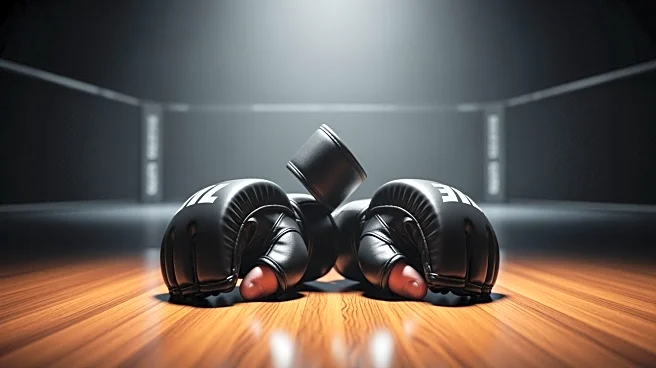What's Happening?
Former Bellator light heavyweight champion Vadim Nemkov has expressed his views on Tom Aspinall's decision to halt his fight against Ciryl Gane. The fight, which took place at UFC 321 in Abu Dhabi, was
ruled a no contest due to eye pokes by Gane. Nemkov stated that Aspinall made the right decision to stop the fight, emphasizing the potential risks of continuing with an eye injury. He noted that if Aspinall had continued and lost, the focus would not have been on the eye poke, but rather on the loss itself. Aspinall's current record stands at 15 wins, three losses, and one no contest, while Gane has 13 wins, two losses, and one no contest.
Why It's Important?
The incident highlights the ongoing debate in mixed martial arts regarding fighter safety and the handling of injuries during matches. Aspinall's decision to prioritize his health over the continuation of the fight underscores the importance of safety protocols in the sport. This situation could influence future regulations and the way referees and fighters handle similar incidents. The decision also impacts the careers of both fighters, as a no contest affects their records and potential title opportunities. The broader MMA community may see this as a precedent for handling eye injuries and other similar situations in the future.
What's Next?
The UFC and other governing bodies may review their rules and guidelines concerning eye pokes and other injuries to ensure fighter safety. There could be discussions about implementing stricter penalties for fouls that lead to no contests. Additionally, both Aspinall and Gane will likely seek to schedule future fights to maintain their competitive standing and pursue title opportunities. The outcome of this fight may also influence matchmaking decisions and rankings within the heavyweight division.
Beyond the Headlines
This incident may prompt a deeper examination of the ethical responsibilities of fighters and officials in ensuring safety without compromising the competitive nature of the sport. The balance between entertainment and athlete welfare is a critical issue in combat sports, and this case could serve as a catalyst for broader discussions on how to protect fighters while maintaining the integrity of the sport.









